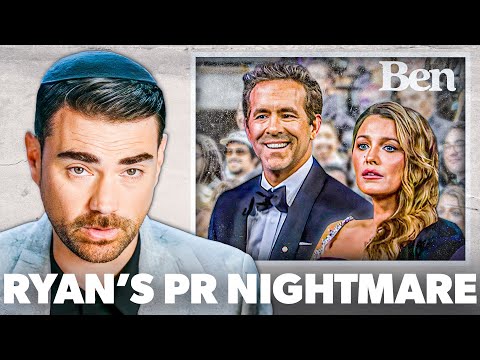The recent 50th anniversary tribute of Saturday Night Live (SNL) provided an unexpected moment that has left many talking—and not in a favorable light for Ryan Reynolds. While the celebration was intended to be lighthearted, the awkward interaction that unfolded on stage hinted at deeper issues surrounding public figures and their behaviors. This moment serves as another reminder of the scrutiny that comes with fame, particularly for Hollywood elites like Reynolds and his wife, Blake Lively.
During the show, Tina Fey and Amy Poehler made a pointed joke that referenced Reynolds and Lively’s recent controversies involving filmmaker Justin Baton. The backdrop to this interaction isn’t just Hollywood gossip; it involves serious allegations against Baton that include accusations of sexual harassment and attempts to rewrite a film script. The couple’s attempts to publicly support Lively raised eyebrows, suggesting they were targeting Baton to deflect criticism and maintain a certain public image. Yet SNL’s attempt to brush over this drama with humor backfired, leaving both Reynolds and the audience feeling uncomfortable.
Reynolds has built a reputation as the affable, fun-loving “nice guy” of Hollywood. However, this incident raises questions about how that image can withstand the pressures of controversy. When your public persona is built on being the lovable everyman, it becomes challenging to reconcile that with actions that could be perceived as bullying or intimidation. It’s a stark reminder that Hollywood’s glitzy façade can often mask murky undercurrents. When the very essence of a celebrity’s brand begins to fray, as hinted at during the SNL tribute, it opens the door for serious career repercussions.
Westward on the SNL stage, Tom Hanks also found himself in an uncomfortable position during a sketch titled “Black Jeopardy.” Portraying a character sporting a MAGA hat, Hanks attempted humor that seemed to imply he was a caricature of a racist. While further dissecting humor in the current political climate can be treacherous, it’s important to note that jokes about political identity often teeter on the edge of offensive. Hanks’ segment may have intended to reflect societal tensions but instead may have alienated considerable segments of the audience, thereby reinforcing divides rather than bridging them.
Both moments from SNL are a testament to Hollywood’s growing difficulty in navigating public sentiment. Actors like Reynolds and Hanks must be mindful of the precarious nature of their reputations, particularly in light of shifting political landscapes. It’s safe to say audiences are no longer willing to overlook missteps, especially when these missteps involve accusations that could have substantial implications for their careers. In a time when accountability is increasingly demanded, the question remains: Can the Hollywood elite maintain their wholesome images when faced with the truth of their actions?
The incidents from the SNL tribute serve as a cautionary tale for celebrities who may believe they can joke their way out of controversy. As backlash becomes more fierce and audiences less forgiving, it would be wise for public figures to reevaluate how they project their images and respond to the criticisms that arise along the way. In essence, if Reynolds and Lively seek to navigate the shifting tides of public opinion, they may need to embrace a more transparent approach rather than relying on humor that fails to resonate. The stage might be set, but the spotlight is unforgiving.



